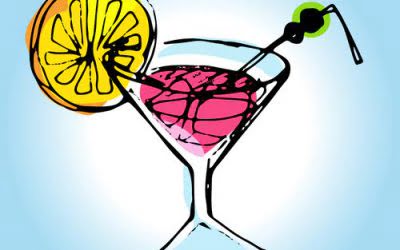Their previous relationship with alcohol likely involved excessive use and a lack of control. Even small amounts can create a slippery slope, leading back to old habits. Alcoholics often find it difficult to stop at one or two drinks because their brains have been conditioned to crave more.
Beginner’s Guide to Drinking Coffee
One of the most pressing questions for individuals recovering from alcohol addiction is whether they can ever drink again. It’s a complex issue with no one-size-fits-all answer. In this blog, Taylor Recovery will explore the considerations surrounding alcohol consumption post-treatment and delve into the factors influencing this decision. In summary, the concept of controlled drinking in the context of alcoholism is fraught with complexities and divergent opinions. While it offers a potentially less daunting goal than absolute abstinence for some, it also carries significant risks that cannot be overlooked. The debate underscores the importance of personalized i want to start drinking again approaches to recovery, taking into account the unique circumstances, risks, and resources of each individual.
- Avoiding the first drink is the key to success in sobriety.
- For alcoholics, stopping at one drink is not a real option.
- What works for one person may not always be suitable for another, so it is always advised that you seek expert guidance.
- If you do not have a network of supportive people, you should try to find one; fortunately, you have options.
- The psychological and emotional aspects of recovery are deeply intertwined with an individual’s ability to maintain long-term sobriety.
Understanding Alcohol Use Disorder
Life was going great – it was six months alcohol free and something happened. Now I’ve started drinking again and I don’t know Halfway house how to stop! Personally, I think that this is such a good question because the truth is that we are bombarded every day with pro alcohol messages everywhere we go so it’s normal to start drinking again.
The Concept of Controlled Drinking

Social withdrawal is another indication that an alcoholic has relapsed. Individuals who are sober but have an alcohol use disorder often feel the need to isolate themselves when they begin drinking again, to avoid shame from their loved ones and recovery community. Another sign of self-isolation is failing to follow through on plans and personal responsibilities. This is often obvious http://www.myguide.com.mt/sober-living/abstinence-violation-effect-ave-what-it-is-relapse-4 to the people in the individual’s life who support him or her the most in recovery. A sponsor or other member of a support group may notice that their friend has made excuses for not attending meetings.
Tips to Help You Stay Sober
Recommit to your self-care plan, especially activities that eased stress and other emotional triggers. Many people think preventing a relapse means just saying “no” to a drink. But by the time you’re looking at a can of beer or a bottle of liquor, you’re in the last and most difficult stage of a relapse. By focusing on these positive aspects of an alcohol-free life, individuals can remain committed to their recovery journey and experience a greater sense of overall well-being. By exploring these alternatives, individuals can confidently navigate social situations and maintain their commitment to a sober life.

The Pros and Cons of Drinking After Alcohol Treatment
- By being aware of these stages of relapse, you may be able to identify the signs early on in yourself or someone else and take steps to adjust what’s happening before there’s a full-blown relapse.
- I don’t want to go back into old patterns and drink as heavily and as much alcohol as I used to, but the idea of a seltzer on a hot day or a glass of wine during a nice dinner does have an appeal to me.
- Whether you’re feeling overwhelmed, unsure about your symptoms, or just looking for answers — we’re here to listen, without judgment.
- Choosing the right tools can make a world of difference in your journey to drink less.
- Non-alcoholic drinks are a great way to join in the festivities without compromising your well-being.
This is in addition to the significant health and personal impacts alcoholism can have on the individual and their families. As a person with an alcohol use disorder goes through detox and rehabilitation, their body seeks to regain normal function and balance. This process may cause intense withdrawal effects initially, which usually lessen over time. However, significant alcohol cravings may last much longer and often contribute to relapse. Teachers or other parents may notice that a certain child is always picked up late or they never have a lunch packed for them.

